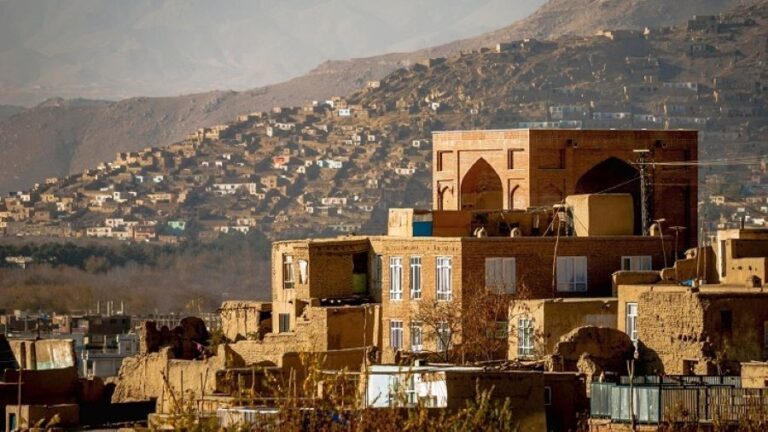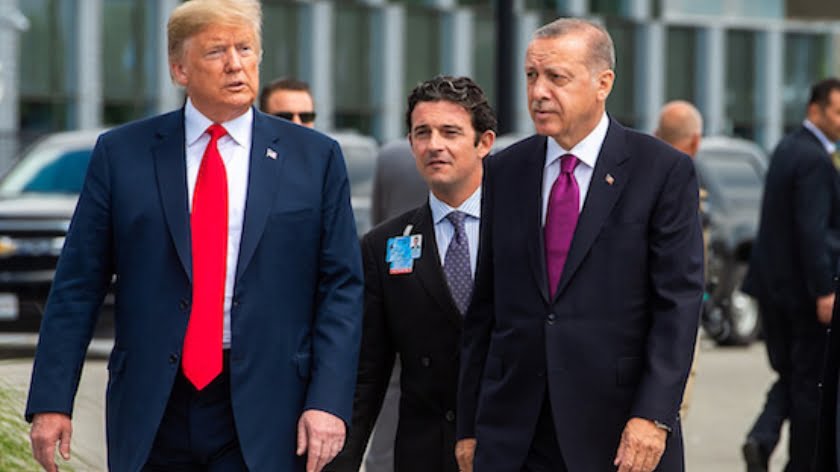“Russian Oil Price Cap”: the Middle East’s Perspective
Attempts by G7 countries to set a price limit on the sale of Russian oil on world markets are provoking reactions in the Middle East region, especially in oil-producing countries.
In local analyst circles, the message promoted by the proponents of this idea that the demand for hydrocarbons has decreased, is not popular. The Americans want to promote this idea in order to bring prices under their control and then bring them down, according to the plans of Joe Biden’s administration.
The region also challenges Western claims about the end of the oil age. In recent years, numerous heralds have prophesied the alleged coming of an age of alternative or clean (“green,” “renewable”) energy under the pretext of saving the planet’s climate.
According to the Kuwaiti expert, oil still plays a major role, especially in developing economies: China, India, etc., where basic industries rely primarily on the use of fossil fuels and their products. And alternative sources cannot be a substitute in these segments.
The events in Ukraine have contributed to the fact that oil prices have risen to record highs, as expected. Moreover, in the context of the conflict, demand for the use of oil for military strategic purposes has increased. Germany has announced its intention to expand its armaments, which requires their supply with petroleum products and fuels and lubricants.
The second aspect concerns the reality of the introduction of the so-called oil price cap.
The fate of this plan depends on the unity of positions of European countries, without which its implementation is unattainable. At the same time, after the start of the special operation in Ukraine, there is no such unity, as some countries agreed to buy Russian oil for rubles.
Behind the scenes, the G7 countries are trying to convince other members of the community to create their own hydrocarbon market, in which the decisive word remains with the consumer countries. In other words, this would be something of a monopoly. In the long run, however, the pursuit of “price limits” risks creating a black market for oil supported by a number of countries. Therefore, there is great doubt that the Americans and the West will be able to push this idea through.
A Saudi energy expert, and member of the Kingdom’s Shura Council, Dr. Fahd M. Ben Juma, called the price cap project “a mockery.” It thwarts the principles of entrepreneurship on which the very sponsors of this project rely. Namely, the free market and competition, where the relationship between supply and demand plays a decisive role, not pressure from anyone. Limiting prices will create ugly distortions in commodity markets and multiply the risks for businesses.
Russia, as the second oil producer in the OPEC + group and the third in the world, is the target of the proposed deal, which is generally not surprising. Even earlier, before the recent events, the members of OPEC were treated similarly. In particular, individual members and the organization itself have been accused of monopoly and fought against under the slogan of fighting climate change. What is happening today with Russian oil may happen tomorrow with the “black gold” of other important members of OPEC, the authors warn. They will be pressured under various pretexts to increase the production of crude oil while at the same time lowering their prices.
Such a decision, the Emirati economist believes, could be forced on us, the petroleum countries, both individually and in the context of OPEC, by the United States under the pretext of accusations of price manipulation in order to overcharge them. We all need to be wary of blackmail.
Middle Eastern analysts believe that the policy of limiting prices inherently contradicts the policy of OPEC and OPEC +, which includes the world’s largest oil producers and suppliers – the Russian Federation and Saudi Arabia, and thus it aims to engage them in conflict with the G7 countries and have them quarrel with each other.
“We, together with the Group OPEC +, have faced difficult challenges and emerged from them more united than before,” Saudi Energy Minister Prince Abdulaziz bin Salman said recently. He expressed satisfaction with the cooperation within this group, thanks to which its members have been able to “face the existing challenges and guide the markets, including the possibility of reducing production at any time and in different ways”.
This means that the stability of supply and balance in the markets will remain the strategy that the group will pursue in the short and long term.
These days coincide with another anniversary of OPEC – the Organization of Petroleum Exporting Countries, founded in September 1960. Thanks to its activities, in recent decades oil-producing countries have returned their natural resources to national sovereignty, put an end to the dominance of Western monopolies, taken control of oil prices and strengthened their role in the world economy and politics.
It is worth noting that Moscow once supported a number of OPEC member countries that fought for an independent course in oil affairs. In 1971, after Algeria nationalized its hydrocarbon wealth, the Western monopolies announced a boycott of Algerian oil. In response, Moscow, at the request of the republic’s authorities, sent a large force of oil workers to provide technical assistance and bought oil declared “illegal” on world markets.
In 1972, Iraq nationalized the largest foreign company, the Iraq Petroleum Company, which controlled the exploration and production of oil in Iraq between 1925 and 1961. The Western camp opposed these measures and threatened a trade and economic blockade of the country. In response, the USSR sent its specialists and tankers to expand purchases of Iraqi oil, which was subject to an embargo.
Thus, the current reality in oil markets, including Russia’s cooperation in OPEC +, has its historical roots, which is not forgotten in the Middle East today.







